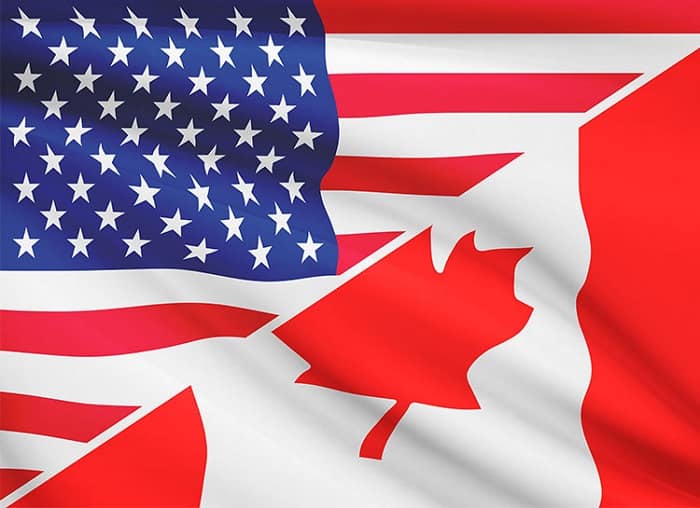The world is in the coronavirus induced pandemic together, but every country has taken different measures to combat it. The United States of America (U.S.A), as per the US’ Centers for Disease Control latest data has more than 1.8 million positive cases, with a death toll of approximately one hundred thousand people. The recovery rate in the USA is 25.82%. Its neighbouring country, Canada has more than 87 thousand positive cases, with a death toll of 6,765 people. Around 46 thousand people have recovered.
In the USA, the government is focused on making its people return to work soon, despite Dr Anthony Fauci’s warnings of ‘serious consequences’. Many states have allowed hair salons, restaurants, gyms, theatres, beaches to reopen. While in Canada, only when the provinces had clear evidence of the curve flattening, they began to relax certain lockdown restrictions. Even then, everyone is being cautious by maintaining strict physical distancing rules. The lockdown and restrictions along with such rising cases have caused some speculations regarding the resumption of colleges and universities
USA and Canada are one of the few countries whose educational institutions attract Indian students. Both the country’s economy heavily depends on international students, amongst whom the majority are Indians. The summer intakes were quite impossible, as the whole world witnessed the lockdown. This caused non-issuance of visas, deferment to fall intakes, delayed fee payments, etc.
Abhinav Kanagat, from Renaissance Educare, informed that many of his students whose enrollment has been accepted have been suggested to defer to next semester. “Universities will be conducting the classes online, as they want students to enrol. But for the safety of students, they have been asked not to pay the fees until their visas arrive”. The uncertainty of the lockdown makes it a gamble for the students.
Aditi Chauhan from AECC Global shares that the universities might start soon, with the September intake as by the second or third week of July the countries might open their boundaries for the international students again. If by chance the situation worsens then the students will be left with three options which are, either to opt for online classes or issue a refund or defer their intake to January.
The biggest benefit for the students is that many universities will be offering higher scholarships in certain courses (especially in Australia). This will make it viable for the students and provide some kind of financial relief and make it easier for them.
“The students who have been deferred for next intake have enrolled themselves in certification programs like EDX, Coursera, Harvard online courses, majority of which are not relevant but a couple of courses are available which are helpful”, said Abhinav. Studying these courses adds to the profile of the students and at the same time, it acts as a precursor to the courses one wants to enrol in.
Velisha Patel is one his students whose intake has been postponed and is now currently engaged in a project called ‘Project Sayog’ with her friend, in which they made 50,000 reusable cotton masks with the help of local women tailors who were unemployed in the lockdown and distributed it to the needy people for free of cost.
Her family has been scared to send her to another country due to the COVID-19 situation. She shared that the US University has already issued her admission, but as the embassy is closed, she has to wait it out. Managing finances in a foreign country where the chances of the campus being closed are more likely and finding a job might make it difficult, but Velisha is positive about finding a way out through this.
Jimit Gandhi is a student of Aditi and he mentions that during the lockdown he had kept himself busy by studying. His family is also worried but he is positive about things working out in his favour. He also mentioned that his educational institution has been communicative and understanding throughout. He also expressed his opinion about finance management that since few cities have already lifted the lockdown and work has resumed too along with that the bonus of working hour extension, which was earlier 20 hours in now 40 hours.
Regarding the IELTS and TOEFL, the dates have been postponed. Currently, the classes in Ahmedabad are available online and Vadodara will soon have online classes too. But in recent times, the Duolingo application has been receiving a lot of traction. It enables a person to take the exam from home and few universities are accepting those scores too. In IELTS, there’s a grading system, whereas, in Duolingo (which charges $49-$50 for a test), it tests you on your understanding of the language.
The concept of GRE and SAT gains importance basically to recognize the students and their analytical skills. All the universities refer to the Analytical Writing Ability (AWA) score to understand the student’s command over the language.
The institutions have given it in e-mails that online learning will in no way affect the future work permit of a student. In Canada, the working hours have been increased from 20 hours a week to 40 hours a week. Also, in the USA, international students pay a higher amount of fees which makes a large impact on the economy of the country. Also, the number of Indian students getting admission to good colleges and universities might increases, if at all the USA plans to restrict the admission of Chinese students.
In the end, countries will definitely open up and make an attempt to stabilize their economy which will be beneficial for the Indian students.













